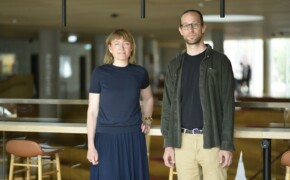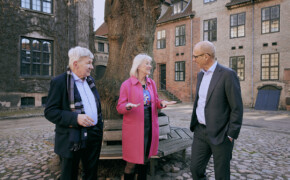Universitetsavisen
Nørregade 10
1165 København K
Tlf: 35 32 28 98 (mon-thurs)
E-mail: uni-avis@adm.ku.dk
Section
During the course of their studies, many students get most of their social needs covered at university. But what do you do after you finish your degree? Mikkel Schmidt talks about how he had to both find new interests and friends, and hold on to the old ones.

Can you study at a foreign university without a valid passport? Yes, according to the Danish government, which has just tabled a bill on virtual exchange programmes for Danish students. The University of Copenhagen supports the measure.

There has been an increase in the number of cases of exam cheating, but according to the deputy director, it is at an »acceptable level«. But this worries one researcher, who calls it »the tip of a larger iceberg of breaches of good scientific practice.«

The University of Copenhagen has seen a slight increase in the number of applicants, and pretty much the same number of admitted new bachelor students as last year. The number of women continues to increase.

Students invited to a debate on how we shape an unpredictable future and get to grips with the new technology.

On a course on the Sociology programme at the University of Copenhagen, students have been using ChatGPT to understand and interact with theory in new ways. It has lifted the students' academic level, according to the instructor.

Many students are baffled by guidelines on avoiding plagiarism. Here are a few tips from an expert.

Researcher says the numbers are »concerning« and criticises universities for »leaving students in the lurch« by not preparing them sufficiently.

How has a 20-year storm of Danish university reform affected the University of Copenhagen? The rectors of the period, Linda Nielsen, Ralf Hemmingsen and Henrik C. Wegener, give us the inside story.

